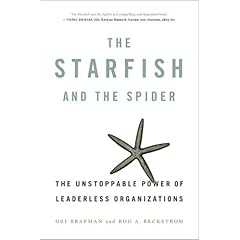I got the sweetest little iPod Shuffle yesterday to replace the mini that was 'smash-and-grabbed' from my Landrover 6 months ago. (The new Shuffle is the cutest little thing. You just want to play with it.) Anyway, I downloaded the newest iTunes and podded (is that a word?) up my Shuffle with a backlog of podcasts to listen to while driving. The three I listened to last night included Venture Voice interviews with Guy Kawasaki and Reid Hoffman of LinkedIn as well as this one on Pay per Post.
Michael Arrington and Rob Hof (Silicon Valley Bureau Chief at Business Week) took a few minutes today to talk to Ted Murphy (founder and CEO of PayPerPost) and Josh Stein (a Director at Draper Fisher Jurvetson) about the funding and the controversial nature of PayPerPost’s business.
The Podcast Driveby
Michael Arrington has a definate load of redass out for the boys at PayPerPost and performed something akin to at podcast Driveby. He must have said 'unethical' thirty times. At one point he says, "I wouldn't want to draw any comparisons...", and then brings up statutory rape as an example of something that the free market would allow but that's not good for society. (Statutory rape?)
It seems that TechCrunchThinking feels that it's PayPerPost's duty to require that bloggers post that they are being paid to write about a topic and that failure to do so undermines the very fabric of credibility that the bloggosphere has been built upon. He, Michael Arrington, would never allow so crass and slimy a business to become affiliated with his brand and actually pulled a $40 add buy on TechCrunch so that his hands would remain clean. Poor Rob Hof of Business Week was so upset that he could only occasionally interject a 'unethical' comment of his own. (Arrington interjects that Hof is unable to find any humor at all in the situation.)
While the podcast is entertaining since Arrington is doing his best to get his guests to admit that they're willing to slime the bloggosphere and trade in their Dudley Dooright hats for Snidly Wiplash moustaches if the price is right, Michael Arrington is not a great interviewer. The PayPerPost duo actually came across as sympathetic since it was obvious that Arrington had a pot of boiling oil ready and was just waiting for an opportunity to use it. At various points he interrupts with comments like, ' you say what you're going to and then I'll tell you the real answer." That's an interview in the style of Morton Downey Jr., not a blogger who has 'a social contract with his readers'.
Arrington just can't get past this idea of paid placement. He thinks he has a real A-Ha moment when PayPerPost says that this is a way for small companies to get a 'boost' in name recognition. Arrington trumps that with, 'if the company was worth anything they wouldn't have to pay to get written about'.
Business? What's a business?
This more than anything shows just how insular and elitist the A-list bloggosphere is. Arrington thinks that all the CEO's of all the companies in America should get to know the A-list bloggers and the bloggers will decide if they're worth writing about.
Arringtons world does not contain real red-blooded businesses. It contains room for geeks, aps and ASP's. The very thought of a small regional business reaching out to the bloggosphere in an attempt to gain recognition or be seen by a certain demographic goes completely over Arringtons head. The PayPerPost duo brings up shoe retailers and single locations, Arrington acts like these types of businesses don't exist.
Mainstream media sells editorial
PayPerPost is doing exactly what tradition media does. My business Surface Medical spends money on traditional media. I'll highlight some local examples that I'm intimately familiar with.
Salt Lake Magazine offers paid 'advertorials' in runs with specific topics. For example: Salt Lake Magazine will run a 'health issue' in Jan/Feb. They then go and find health care advertisers and pitch them with inclusion in an advertorial section. The section is purposely designed to appear as though it's editorial. Only it isn't editorial. It's paid advertising. The attraction to the advertiser is that it looks like editorial. I've also been pitched and gone with a service provided by a local paper in which they have an auction, sell my inventory, and keep the money in trade for advertising dollars.
Selling editorial is frowned on by the editors and love by the ad sales guys and the advertisers.
The PayPerPost model for business.
Most businesses are not run by geeks or bloggers. Most businesses are local. Most businesses are small.
PayPerPost will be a marketplace whose success or failure will be determined by how effective their advertisers are. The market will determine the benefits and opportunity costs of using paid editorial. Some bloggers who don't disclose that their content has been paid for will be outed and flamed. (Probably by those do-gooders from Wikipedia.)
I'm getting gentrified in my old age.
Yesterday I was with the masses of bloggers descrying the PayPerPost sellouts. Today my view has moderated. PayPerPost is sticking with their mantra of 'markets are efficient and we believe in the American way'. Good for them.
Disclaimer: This post has not been paid for.
 Sat, March 6, 2010 at 6:07 PM in
Sat, March 6, 2010 at 6:07 PM in  Business Models
Business Models  Post a Comment | | tagged
Post a Comment | | tagged  Swagapalooza
Swagapalooza 






 , subtitled "The unstoppable power of leaderless organizations." This idea will be familiar to many of us who've been watching open source, wikipedia, and other decentralized online phenomena, but I found that the most interesting parts of this book were about the offline world, and how leaderless organizations have succeeded there.
, subtitled "The unstoppable power of leaderless organizations." This idea will be familiar to many of us who've been watching open source, wikipedia, and other decentralized online phenomena, but I found that the most interesting parts of this book were about the offline world, and how leaderless organizations have succeeded there.








